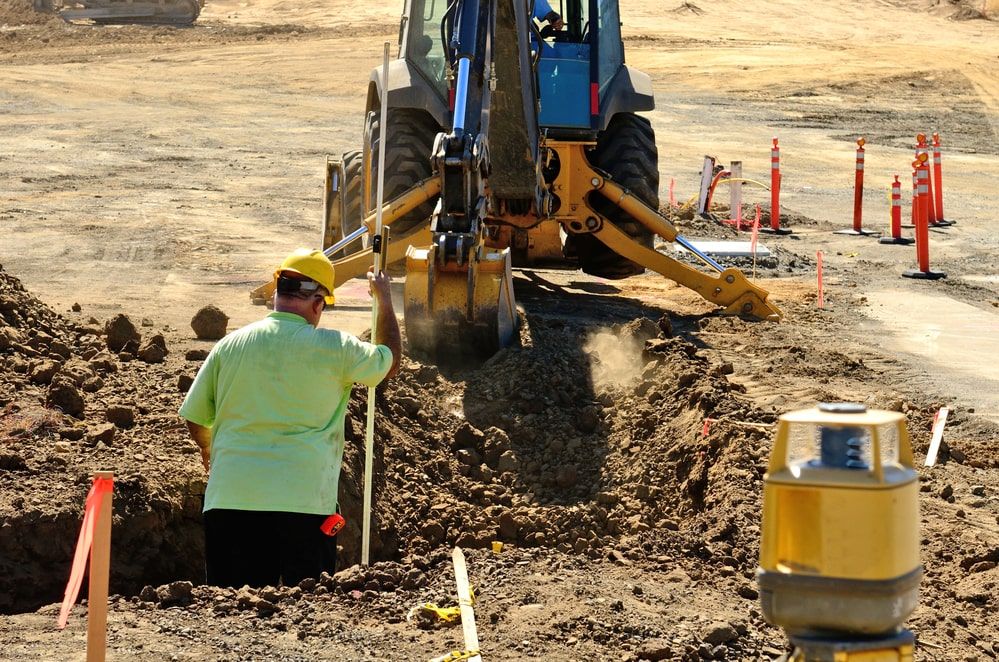Residential Excavating Ohio - Specialized Excavation for Ohio Houses
Residential Excavating Ohio - Specialized Excavation for Ohio Houses
Blog Article
Comprehensive Excavation Strategies: Grasping the Fundamentals for Success
In the world of building and construction and civil engineering, the relevance of effective excavation strategies can not be overemphasized. The careful planning, accurate implementation, and thorough attention to detail called for in excavation tasks require a thorough method that includes numerous fundamental elements. From initial dirt analysis to the application of security procedures and normal development surveillance, mastering these core elements is necessary for achieving success in any type of excavation undertaking. However, the true mastery lies not simply in recognizing these principles but in seamlessly integrating them to navigate the complexities of excavation projects with finesse.
Recognizing Excavation Job Planning

The first phase of any type of excavation project is the planning phase, where critical decisions are made that can significantly affect the end result of the job. Comprehending the task scope, budget, and timeline restrictions is vital for creating an extensive excavation plan that makes sure the task's success.
One secret facet of excavation project preparation is the advancement of a comprehensive timeline that outlines the series of activities, landmarks, and due dates. By thoroughly thinking about all these elements throughout the planning phase, excavation jobs can be performed efficiently and properly, leading to successful results - lancaster excavation.
Dirt Evaluation and Site Assessment
Performing comprehensive soil evaluation and website assessment is a crucial action in the prep work stage of any excavation job. Dirt analysis entails figuring out the make-up, structure, and residential or commercial properties of the dirt at the excavation website. This information is important for recognizing the soil's bearing capacity, wetness content, and potential for erosion, which are crucial consider determining the excavation techniques and devices required for the task.
Website analysis goes past soil analysis and includes a wider analysis of the total site conditions. This examination consists of recognizing any type of prospective dangers, such as below ground energies, environmental problems, or unpredictable surface, that can influence the excavation procedure. By thoroughly assessing the site, project managers can develop reliable excavation approaches that focus on safety and security, efficiency, and environmental management.
Making use of sophisticated innovations like ground-penetrating radar, dirt tasting, and drone studies can improve the accuracy and effectiveness of dirt evaluation and site assessment. Spending time and resources in these initial actions can eventually conserve time and stop expensive hold-ups or difficulties during the excavation procedure.
Devices Option and Use
Effective excavation projects count heavily on critical devices selection and usage to make certain optimum performance and performance. Choosing the ideal equipment for the work is vital in making the most of performance and decreasing downtime. Elements such as the kind of soil, deepness of excavation, and job range play a significant duty in figuring out one of the most appropriate tools for the job available.
In enhancement to choosing the suitable devices, appropriate usage is crucial to project success. Operators has to be trained to take care of the equipment securely and successfully - lancaster trenching. Routine upkeep checks and timely repair work aid protect against break downs and make certain constant efficiency throughout the task
Precaution and Regulations Compliance
In the world of excavation jobs, prioritizing safety and security actions and Home Page compliance with guidelines is extremely important to guaranteeing a lawfully sound and safe and secure operational setting. Safety actions incorporate a series of methods, consisting of performing detailed website analyses, applying proper signs and obstacles, and providing appropriate safety training for all employees included in the excavation procedure. Adherence to guidelines, such as OSHA demands in the USA, ensures that the excavation project satisfies the needed requirements to visit the site safeguard workers, onlookers, and the surrounding environment.

Monitoring Progress and Adjusting Methods
How can predict supervisors effectively track the advancement of excavation jobs and adjust their methods accordingly to enhance end results? Monitoring development is essential for making sure that excavation jobs remain on track and fulfill deadlines.

Verdict
To conclude, understanding the basics of extensive excavation strategies is important for the success of any kind of job. By understanding task planning, evaluating soil and website problems, picking appropriate tools, abiding by safety regulations, and keeping track of progression, job supervisors can ensure a effective and smooth excavation procedure. Carrying out these approaches will certainly cause successful results and lessen possible risks or obstacles throughout the excavation project.
The first stage of any excavation job is the preparation phase, where important choices are made that can significantly influence the outcome of the project. Recognizing the task timeline, budget, and range restraints is essential for producing a comprehensive excavation plan that makes certain the project's success.
How can project managers efficiently track the innovation of excavation tasks and adjust their strategies as necessary to enhance end results? By closely checking progression and being ready to adjust methods, project managers can improve the total success of excavation projects.
By understanding job planning, examining dirt and website problems, selecting appropriate equipment, complying with safety policies, and keeping an eye on development, job managers can guarantee a effective and smooth excavation process.
Report this page